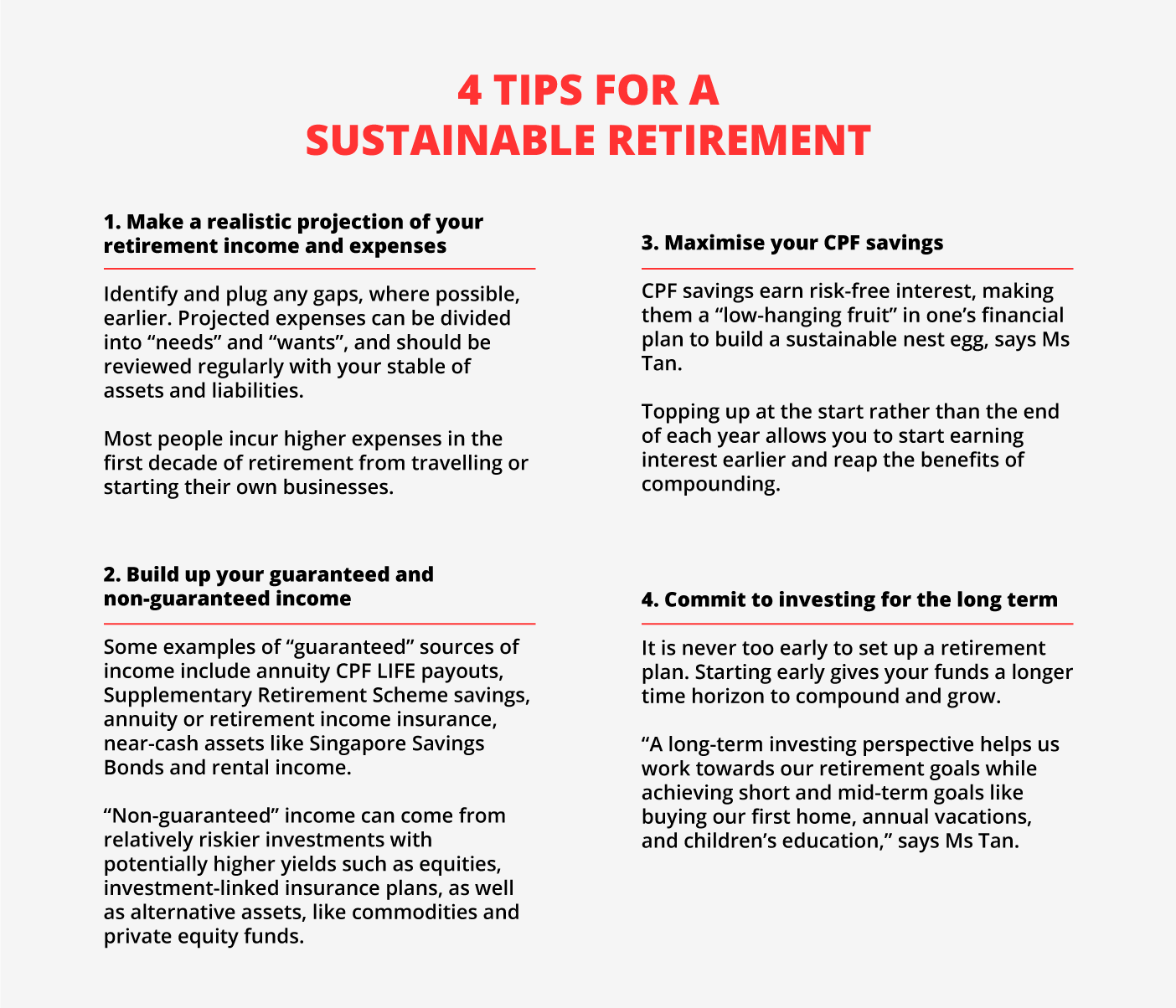![]()
If you’ve only got a minute:
- With age, we become more susceptible to health issues. Getting insured will give you — and your family members — greater peace of mind to enjoy your silver years.
- Beyond the national schemes, there are other medical insurance plans that you can consider, such as disability income insurance, personal accident insurance and hospital cash insurance.
- When it comes to choosing from the array of plans that are available, you should consider something that strikes a balance between your needs and your budget.
![]()
This article was first published on The Straits Times on 27th February 2022.
Singaporeans are living longer. The Department of Statistics’ (DOS) latest figures show that life expectancy at birth stood at 81.5 years for males and 86.1 years for females in 2020. This compares with 79.2 years and 84 years a decade ago.
At the same time, healthcare costs have soared at a rate that outpaces the rising cost of living.
According to DOS' data, the Consumer Price Index for healthcare has increased by 54.8 per cent — from 64.340 to 99.579 — from 2001 to 2021. This means that an average item or treatment in the healthcare category that cost S$10,000 in 2001 would have cost S$15,480 in 2021.
With age, we become more susceptible to health adversities and the road to recovery will also be longer. Getting insured will give you — and your family members — greater peace of mind to enjoy your silver years.
Is MediShield Life enough?
MediShield Life is a mandatory health insurance plan for Singapore citizens and permanent residents (PRs) administered by the Central Provident Fund (CPF). It covers subsidised treatment in B2 or C-class wards in public hospitals, as well as selected outpatient treatments, such as renal dialysis and chemotherapy.
Medical expenses incurred in higher-class wards, in both public and private hospitals, can also be partially paid for via MediShield Life.
This basic plan provides coverage for life and can be paid fully with MediSave savings. But is it sufficient?
If you prefer the flexibility to seek medical help from private hospitals and to recuperate in premium wards, you should boost your coverage with Integrated Shield Plans (IPs), says Ms Lorna Tan, DBS Bank’s head of financial planning literacy.
IPs, which are provided by private insurance companies, offer coverage on top of MediShield Life, but at higher premiums. The annual premiums can be paid from MediSave funds but are subject to additional withdrawal limits. The excess must then be paid in cash.
From April last year, all IP riders require a 5 per cent co-payment, including renewals of existing IPs with full riders (that covered both deductible and co-insurance). These payments are capped at S$3,000 per policy year if policyholders seek treatment from the insurer’s preferred healthcare providers.
While those who bought full IP riders prior to this had their medical bills fully covered, this guideline was put in place to ensure that stakeholders play a more active role in managing their healthcare costs.
Other reasons why IPs may be preferable include the flexibility to choose your own doctor and a typically shorter waiting time if you opt for private hospitals, and sufficient coverage for post-hospitalisation treatment costs, says Ms Tan.
Which other government schemes are relevant for my silver years?
ElderShield and CareShield Life
ElderShield and its enhanced version, known as CareShield Life, are long-term disability insurance plans available to all Singaporeans and PRs.

They offer financial support in the event of “severe disability”. This is defined as the inability to perform at least three of six activities of daily living, which include washing, dressing, walking, feeding, transferring and toileting.
CareShield Life offers higher monthly disability benefits — starting at S$600 in 2020 and increasing with time — compared to the ElderShield 300 and 400 schemes which offer S$300 or S$400 respectively.
While the disability benefits for ElderShield are given for up to 60 or 72 months, CareShield Life offers these payouts for life.
All Singaporeans and PRs born in 1980 or later are automatically enrolled into CareShield Life when they turn 30, while those born earlier are covered by ElderShield. ElderShield policyholders can choose to remain on ElderShield, switch to CareShield Life, or opt out completely.
However, Singaporeans and PRs born from 1970 to 1979 who are already insured under the ElderShield 400 scheme and are not severely disabled would have been automatically enrolled into CareShield Life from December last year.
The Government is offering participation incentives of up to S$2,500 for Singaporeans born in 1979 or earlier if they join CareShield Life by Dec 31, 2023. If you are part of the Merdeka or Pioneer generations, you can get additional incentives of S$1,500.
Dependants’ Protection Scheme (DPS)
Singaporeans and PRs aged between 21 and 65 are automatically included in this opt-out term insurance scheme upon your first CPF contribution.
The scheme provides basic financial protection for you and your family in the event of death, terminal illness or total permanent disability.
For members up to age 60, the maximum sum assured is S$70,000. For those between 60 and 65, it is S$55,000.
The coverage ends when the member turns 65 or when there is an eligible claim, whichever is earlier. DPS premiums can be deducted from our CPF Ordinary or Special Accounts. While the DPS is simple to understand, the coverage is basic and usually insufficient, especially if you have dependants or are servicing a home loan, says Ms Tan.
“It is prudent to identify your needs and plug the shortfall. Consider adding other term insurance plans to boost your cover in terms of the sum assured and for a longer duration, depending on your financial situation.”
Home Protection Scheme (HPS)
For CPF members who own a HDB flat and are paying their monthly housing instalments using their CPF savings or cash, the HPS is a mortgage-reducing insurance that protects you and your loved ones from losing your flat in the event of death, terminal illness, or total permanent disability.
How else can I boost healthcare coverage?

Beyond the national schemes, there are other medical insurance plans that you can consider. Ms Tan recommends looking at these four types of coverage:
Critical illness insurance: Pays out a sum of money if you are diagnosed with a critical illness. The coverage of illnesses differs from policy to policy.
Most Singaporeans are underinsured from critical illness, says Ms Tan. “There is a real risk that a major illness could lead to financial disaster, either from bills or the loss of long-term income.”
Disability income insurance: Provides a monthly payout in the event of disability due to an accident or illness, resulting in you being unable to work.
They typically cover up to 80 per cent of your monthly salary, and will last for 5 to 10 years, or until you reach the age of 60 or 65.
Personal accident insurance: Protection for medical treatment due to injuries sustained through accidents such as falling from a great height or drowning.
Some of these plans also cover infectious diseases such as hand, foot and mouth disease, chicken pox and dengue.
Hospital cash insurance: Pays you a fixed amount of money for each day you are hospitalised.
Freelancers, part-timers, and self-employed individuals who are not entitled to paid sick leave or hospitalisation leave should consider getting a suitable plan that includes hospital cash benefits.
When it comes to choosing from the array of plans that are available, you should consider something that strikes a balance between your needs and your budget. Note that pre-existing conditions may not be covered by some of these policies.

This is the final of a five-part series on insurance.







